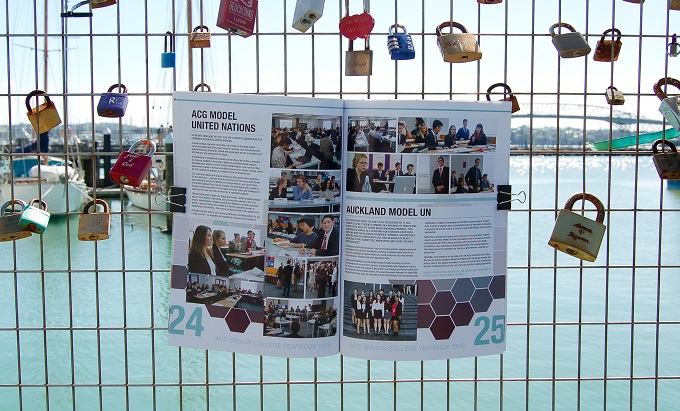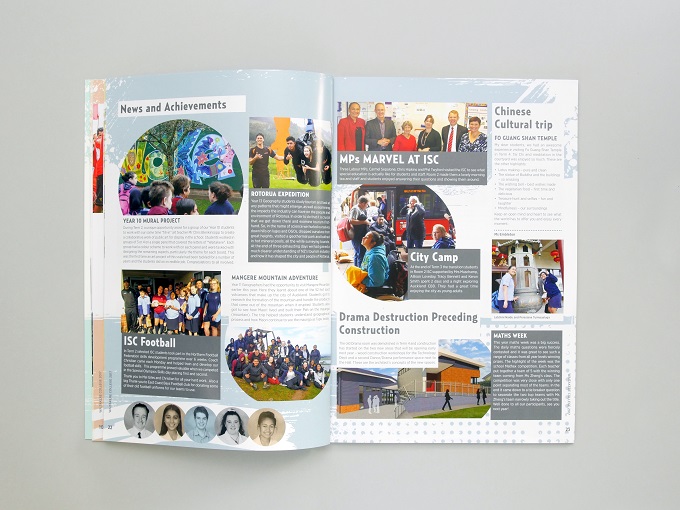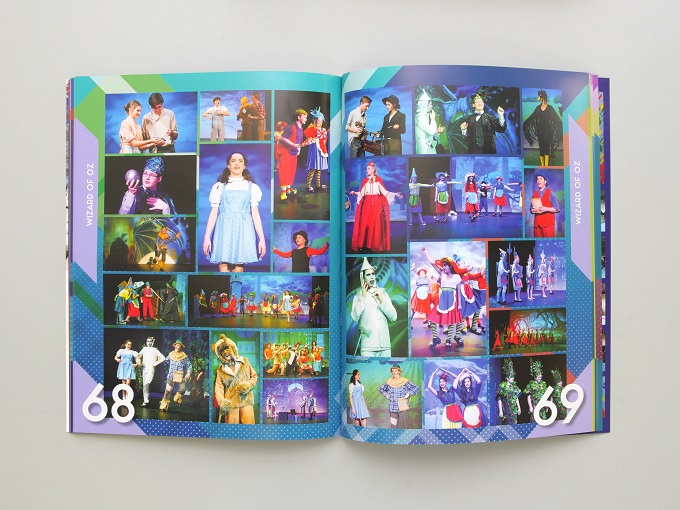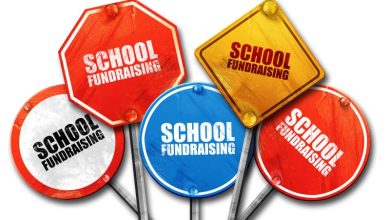The book your students will read for decades to come

You can’t get your friends to sign a virtual yearbook…
In a predominantly digital world, the printed yearbook you can hold in your hands and flick through, still holds a special place in the hearts of students, graduates and families.
It is a tangible keepsake that protects the memories of youth and recalls a time in life that can be remembered fondly.
Now that school yearbooks are more affordable and gaining popularity with primary schools as well as high schools, it’s a big consideration for lots of schools.
With the reduced costs of printing, improved design software and the simplicity of digital photography, compiling a yearbook is now more cost effective and less time consuming than ever.
School News spoke with yearbook printers and designers to get pointers on planning a yearbook, design ideas and how best to capture those special moments.

Planning a yearbook
Like any big school project, planning a yearbook should begin as soon as possible.
Although it may only take about two months to pull together the final product (depending on your printer), the process of compiling photos and articles should occur throughout the year.
Deciding on a printer early will also take some of the headache out of archiving photos because many yearbook businesses offer software or archiving systems through which to store images for easy access.

Design
Yearbook design decisions include everything from the size and shape of the book, paper thickness, whether printing colour or black-and-white, and what to put on the cover.
Beyond those big-ticket decisions, are finer details such as the layout of each page, the type of font, and colour schemes.
Then there’s the all-important question of who to employ to undertake the production and design work.
Yearbook providers offer choice when it comes to design options to cater different budgets and a school’s level of design expertise.
Hiring your own graphic designer can be expensive because they often charge by the hour, including for time spent on alterations and fixing mistakes.
A number of software programs are more user-friendly while specific yearbook software programs offer templates that allow users to drag and drop photos and text into boxes.
Capturing special moments
Of course, the most important part of putting a yearbook together is making sure you capture those milestones and special moments throughout the school year
With so many people owning high-quality phones, the quantity of images available is unlikely to be a problem.
But it is important to establish the most practical means of collecting and collating those photos.
Industry take…
YOLO’s Janet Morgans-Lea shared her specialised insights with School News…
When it comes to yearbooks, print is still dominant, rather than electronic. Students are pro-print: having a digital option as well as print is becoming more popular but it does comes with its own set of challenges, such as privacy issues.
We’ve noticed that the hardest thing about creating a yearbook is sourcing content from busy teachers, especially during the end of Term 3 and beginning of Term 4 when most books are produced. To avoid the rush, you need proper planning.
The phrase ‘content is king’ springs to mind because it’s very true for yearbooks! You need to find the perfect balance of student work and achievements, staff messages, events, trips, and archival information. More photos or more text? That’s always a tough call.
Here are a few tips on how to plan your yearbook content:
- The more students involved in a particular activity/event then the more space should be allocated to cover it.
- Any significant news, such as teachers retiring, new buildings, or amazing achievements should also get more space and tend to be at the beginning of the book.
- Most staff, students and parents prefer having more photos compared to text – a picture really does tell a thousand words!
- Think about captioning portraits, class photos and teams photos – in 10 years’ time when the student looks back it will mean a lot to have everyone’s names captioned.
Once you have the content plan organised, writing and collecting all of the content requires good project management. When are the events happening? Is someone organised to take photos? Which staff member is writing which report? Does the staff member who is writing the report know the deadline, subject, word-length, etc.? We advise using project management software or a calendar to keep track of everything.
Done correctly, a school yearbook will be as unique as the year-group it was produced for. If you want something truly memorable, why not try personalised printing, which gives students the option to have their own personal cover or pages that are completely unique to them.
We keep our eye on the latest design trends, and for 2018 we see bold colours in bright neon, rainbow hues and clashing tones. Large stylised typographic headings in extra bold weights are trendy to use across large photos, with the text often cropped in an artful way. Other trends include hand-drawn elements; retro-inspired illustration-style covers; gradient overlays; double exposure photo and geometric shapes. Authentic photography is also popular – people looking natural, not posed and airbrushed.
If you’ve never designed a publication before, it can be a steep learning curve.
For any school tackling it themselves, we recommend using special yearbook software, because you can pick from a lot of pre-designed templates and styles to make your life a lot easier.
And last but not least have fun!









